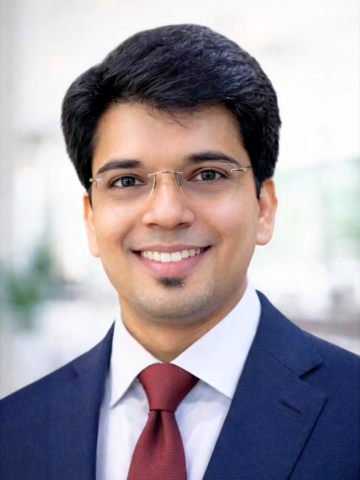
Piyush Prakash
Department
Areas of Expertise
Biography
Piyush Prakash serves as Director of Research and Evaluation for Constructive Dialogue at The Open Academy and as a Visiting Lecturer of Leadership with the Kravis Leadership Institute at Claremont McKenna College. He is an applied researcher working at the intersection of leadership and group processes, particularly collective problem-solving under disagreement, building on his prior professional work in organizational effectiveness and performance management.
With a decade and a half of experience across government, consulting, and nonprofit contexts in India and the United States, Piyush’s work has focused on improving the effectiveness of large public systems by designing performance metrics and data feedback loops that shape attention, informal incentives, and sensemaking within organizations. His prior work in education and early childhood policy examined how the choice of indicators (gamification), used as both goalposts and process measures, can influence behavior, align effort, and support learning and performance in complex bureaucratic systems.
Previously, he served as a Senior Research Officer (Under-Secretary) at the Government of India’s federal public policy think tank, contributing to India’s National Education Policy (2020), worked on education indicators under the UN Sustainable Development Framework (UNSDF) 2023-2027, evaluated World Bank–funded higher-education programs on improving quality and employability outcomes in higher education and later contributed in the United States to service-delivery reform in human-services systems in Illinois and California. He is a regular contributor to government reports, book chapters, national dailies, and journals, and he appears as a policy expert on national and parliamentary TV in India. An engineer by training he holds a Masters in Public Policy with a specialization in data analytics from the University of Chicago and another Masters in Education from the Tata Institute of Social Sciences. His professional practice includes strategy consulting and organizational growth work. He has contributed to the establishment of multi-million-dollar Centers of Excellence in cybersecurity while working as a management consultant and consulted ed-tech (pre-K to higher) and health start-ups on growth strategy.
10: Foundations of Leadership
Teaching Interests
He currently teaches LEAD 10: Foundations of Leadership, the foundational course in the leadership sequence offered by the Kravis Leadership Institute. The course pedagogy emphasizes experience-first learning through case discussion, simulations, structured reflection, and applied projects that connect leadership theory to real-world organizational and policy challenges.
Research Interests
His current research interest lies in understanding how constructive dialogue practices develop within groups and shape collective reasoning and problem-solving under disagreement. Using a sequenced, longitudinal approach, his work studies dialogue behaviors spanning intrapersonal and interpersonal processes and how these co-develop with psychological safety. It examines how patterns of participation, silence, and group reasoning emerge when disagreement carries interpersonal or social risk.
Current Initiatives
As the Director of Research and Evaluation, The Open Academy, he is currently developing a comprehensive metric and assessment tool to evaluate a range of dialogue competencies among students. This work employs a rigorous mixed-methods research approach, incorporating qualitative methods such as observations, focus group discussions (FGDs), and simulations alongside quantitative tools, including surveys and advanced Natural Language Processing (NLP) techniques, to systematically measure and track dialogue development. He is also leading a study on constructive dialogue in partnership with Claremont High School.
